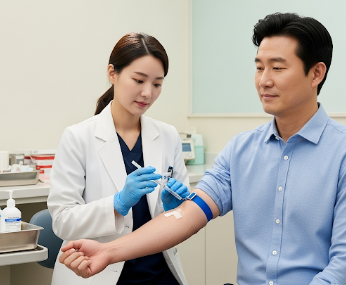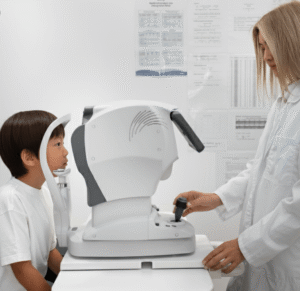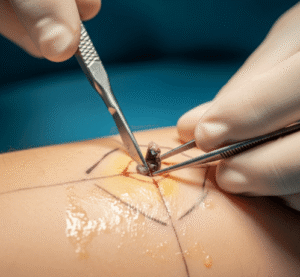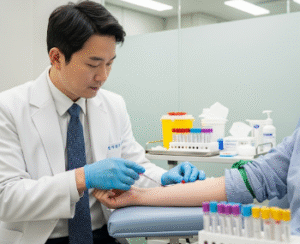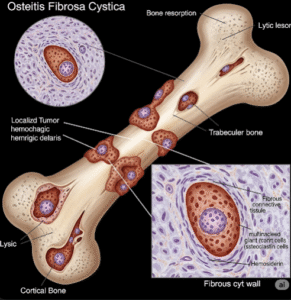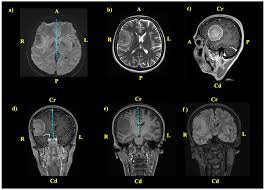Overview
The Antinuclear Antibody (ANA) test is a blood test used to detect autoantibodies that target the nucleus of cells, which are often present in autoimmune diseases. This test is commonly ordered when a patient exhibits symptoms such as joint pain, unexplained fatigue, rashes, or systemic inflammation.
In Korea, the ANA test is widely performed in clinical pathology and immunology laboratories using highly sensitive immunofluorescence or enzyme-linked immunosorbent assays (ELISA). It is a key diagnostic tool for conditions like systemic lupus erythematosus (SLE), rheumatoid arthritis, scleroderma, and mixed connective tissue disease.
What is Antinuclear Antibody (ANA) Test?
The ANA test identifies autoantibodies in the blood that react against the cell nucleus, indicating an immune system attack on the body’s own tissues.
How it works:
- A blood sample is collected and analyzed for ANA
- Common testing methods include indirect immunofluorescence (IFA) and ELISA
- ANA results are reported as titers (e.g., 1:40, 1:160) and patterns (homogeneous, speckled, nucleolar, centromere)
- A higher titer or specific pattern may indicate a higher likelihood of an autoimmune disorder
Key points:
- Non-invasive, simple blood test
- Helps screen for autoimmune diseases
- Guides further testing and diagnosis
- Can monitor disease activity and response to therapy
What are the benefits?
- ✅ Detects autoimmune activity early before major organ involvement
- ✅ Helps differentiate types of autoimmune diseases
- ✅ Guides physicians in targeted treatment planning
- ✅ In Korea, high-sensitivity testing ensures accurate and reliable results
- ✅ Reduces the need for more invasive procedures when autoimmune disorders are suspected
- ✅ Supports ongoing monitoring of autoimmune disease progression
Procedure Details
1) How should I prepare for Antinuclear Antibody (ANA) Test?
- ➤ No fasting is required for the test
- ➤ Inform the doctor about medications, supplements, or recent infections
- ➤ Blood is usually drawn from the vein in the arm
- ➤ Relaxation and calmness can help ensure smooth blood collection
2) What happens during the procedure Antinuclear Antibody (ANA) Test?
- ✅ A healthcare professional cleans the arm and inserts a needle into a vein
- ✅ Blood sample collected into tubes for laboratory analysis
- ✅ Minor discomfort or brief pinch during needle insertion
- ✅ Sample is sent to the laboratory for ANA detection and pattern analysis
- ✅ Test duration: Blood draw takes a few minutes, analysis may take several days
3) What happens after Antinuclear Antibody (ANA) Test?
- ➤ Blood sample is processed, and results are reported to the physician
- ➤ If ANA is positive, additional tests may be ordered (e.g., anti-dsDNA, anti-Sm, ENA panel)
- ➤ Results guide diagnosis, treatment decisions, and disease monitoring
- ➤ Negative ANA generally indicates low likelihood of systemic autoimmune disease
Risks / Benefits
Potential Risks:
- ➤ Minor bruising or soreness at the puncture site
- ➤ Rare infection at the needle site
- ➤ Slight dizziness or fainting during blood draw
Benefits:
- ✅ Non-invasive, safe, and widely available
- ✅ Early detection of autoimmune diseases
- ✅ Guides further diagnostic testing and personalized treatment
- ✅ In Korea, highly accurate tests reduce false positives and improve patient management
Recovery and Outlook
- Hospital stay: Outpatient; no hospitalization required
- Activity: Resume normal activities immediately
- Follow-up: If ANA positive, follow-up with a rheumatologist or immunologist is recommended
- Outcome: Positive ANA requires clinical correlation, as not all positive results indicate disease
- Long-term monitoring: May include periodic ANA testing and other autoantibody panels to track disease activity
When To Call the Doctor
- ➤ Persistent joint pain, swelling, or rashes
- ➤ Fatigue or unexplained fevers
- ➤ Symptoms suggestive of autoimmune flare
- ➤ Any abnormal lab result that requires physician interpretation
- ➤ Sudden worsening of known autoimmune conditions
Best Korea Option / Process
- ✅ Korea offers advanced pathology and immunology labs for ANA testing
- ✅ Uses high-sensitivity immunofluorescence and ELISA methods
- ✅ Expert physicians provide accurate interpretation and follow-up recommendations
- ✅ International patients benefit from VIP services, English-speaking staff, and coordinated care
- ✅ ANA testing is part of a comprehensive autoimmune evaluation program, including confirmatory tests and clinical correlation

